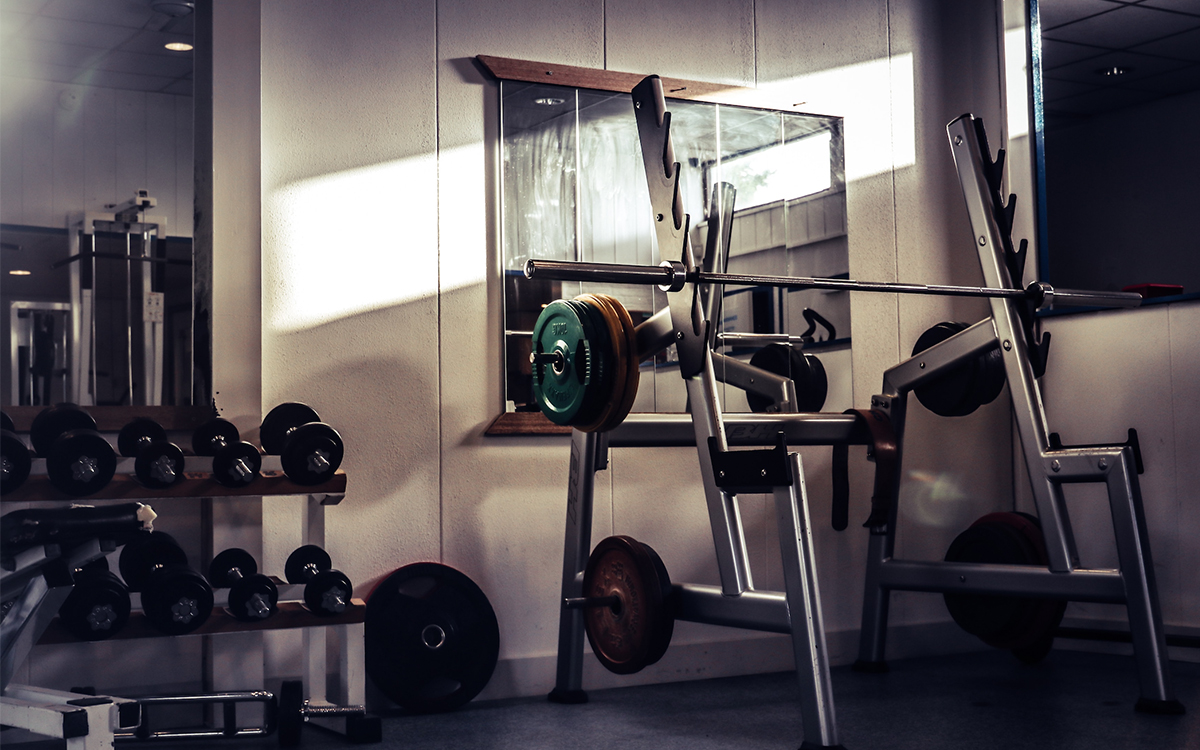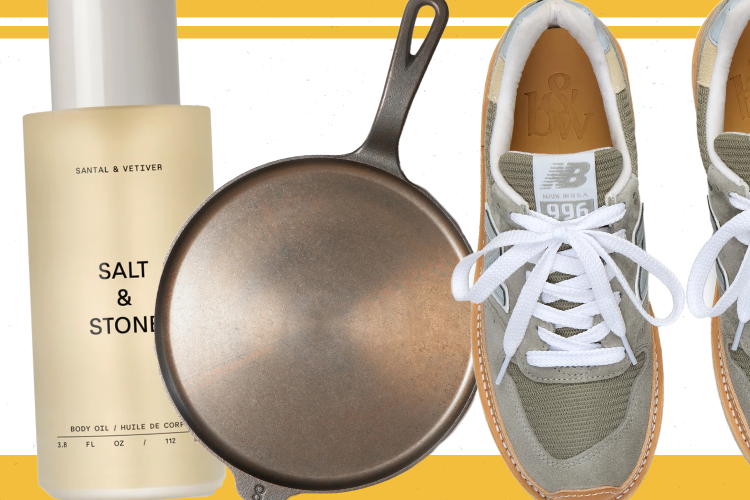Growing up the daughter of Korean immigrants has its challenges, says Areum Kim, a 36-year-old educator from Orange County, California. There’s the rampant racism, for starters. In Kim’s case, this came in the conspicuous form of home stonings, which resulted in broken windows and patio doors. Her family also endured the destruction of Fourth of July decorations which had been displayed to celebrate all the goodness of America.
These and other incidents led to family moves, but no matter where they settled, there was a shaky, stress-ridden foundation underlying her parents’ health. Adding to the tension, they each worked full-time jobs — Dad as a real estate broker, Mom as a “head technician” at NASA’s Jet Propulsion Laboratory. With three daughters to raise, diet and fitness was mostly a secondary concern. Since Kim can remember, her dad drank at least a little bit almost daily and ate copious processed foods, particularly Korean ramen. Kim has perpetually been concerned about her mother’s diet, too, but was most worried by her lack of exercise and inability to relax in the face of never-ending responsibilities.
“Korean society is very patriarchal,” Kim says. “She didn’t have support from anyone.”
With her father, 68, and mother, 63, nearing retirement, the past few years have brought Kim the most profound anxiety about her parents’ health. How has she handled it? By being about as forceful as they are stubborn.
“You have to kind of set them on the path,” Kim says, referring to people in their age group. “They are very set in their ways.”
During family dinners Kim and her sisters, she says, will “jab” at their father about his drinking. (She admits this is not the best means of such engagement, as it can generate conflict rather than change. Her dad often responds by recounting the benefits of moderate alcohol consumption.) The siblings also try to dictate his diet by providing him fresh greens on the table and little to nothing else, figuring he’ll have to eat something.
After dinner, Kim sometimes pulls her mother away from the sink, ordering her to sit down instead of cleaning the dishes. The daughters also gifted their mom a Fitbit, which counts her steps and reminds her when to fill up her water bottle. (Kim says that on top of everything else, both her mother and father don’t hydrate enough.)
All these efforts have been aimed at lowering Kim’s father’s blood pressure and cholesterol level, while controlling a troublesome thyroid condition her mother recently developed. But like many sons and daughters in Kim’s position, broaching the delicate subject of health and fitness with parents — especially as they enter later stages of life, which are still sneakily rife with psychosocial development — has clearly been full of friction.
“Now you’re in a place where you have to be more parental,” says Carrie Singer, Psy.D., director of Quince Orchard Psychotherapy, in Frederick, Maryland. “It can be odd to shift into that power dynamic, putting them in their place a little.”
Pulling this off with grace might take some mindfulness and tact. One approach Singer suggests is called “motivational interviewing,” which she says in this particular case would call for offspring to get their parents to list reasons for improving their own health and for retaining old habits. Entries that may appear on the latter list, Singer says, include “I don’t have time to cook,” “I don’t have energy,” or “healthy food is expensive.” But, Singer continues, change can mean fewer visits to doctors’ offices, fewer prescriptions, more energy to spend with grandchildren and, potentially, a longer life. With the creation of this list, sons and/or daughters, Singer says, can try and meet parents where they are “with what is motivating for them.”
Upon hearing a summary of the ways in which Kim tackled the issue with her particularly hard-headed parents, Singer said it sounded inefficient, because it’s impossible for Kim to be in the presence of her mother and father every single second. Still, it seems like years of wearing them down has paid off — though there have been other contributing factors.

Kim says her mom was motivated to hydrate better and cut down her sodium intake because of that thyroid flare-up, but also because her doctor threatened her with medication. And when the pandemic began, Kim’s mother was granted extended time off from work, too, which helped in the relaxation department. Her mother’s thyroid condition is, at least for now, no longer an issue. Though she doesn’t work out at a gym, per se, her mom does get exercise simply by being what Kim describes as “a busybody.” More than traditional exercise, Kim says, “I want her to relax, I want her to enjoy life, I want her to understand that I don’t want her money, I want her to just spend that money on herself and just live life. Life’s so short.”
Kim’s father’s health has also improved. Last the family checked, his blood pressure reading and cholesterol numbers were closer to more desirable figures. He also recently underwent a colonoscopy, which came back clean, and, fortunately, he’s always maintained a morning workout regimen featuring calisthenics and breathing exercises. When asked if he’s still drinking, Kim takes a big sigh, and says he is, but not as much as he was when she and her sisters were younger. On this front, Kim has waved a white flag.
“I think about the small pleasures people have in life,” Kim says. “I know how much he enjoys it, and he is a bit of a wine connoisseur.”
In the recent past, while traveling, Kim has even purchased her father fine bottles of wine from far-flung locations. She may not have gotten her father to cease drinking, but her surrender has kept them from butting heads even harder — which isn’t such a terrible thing.
“Remember that, ultimately, people are going to live the way that they want to live, and to not take it personally if your family member doesn’t adhere to your prescription,” says journalist and media personality Max Lugavere, whose work focuses on healthy diets. Ten years ago, Lugavere was faced with such difficult conversations of his own. His mother was diagnosed with a rare form of dementia at the relatively young age of 58. For Lugavere, who is the oldest of three boys and was always close to his mom, he says the news was “like a bomb going off in my universe.”
“From that point on I became obsessed with trying to understand why this would have happened to her, what could be done, if anything, to help her at that point, and what could be done to prevent it from happening to myself,” Lugavere says. (There are some indications that, especially with rarer types of dementia, the disease has strong genetic links.) His research took him down a rabbit hole where he learned about the best foods for a healthy brain. By the time he poked his head out again, he’d penned what would become a bestselling book, Genius Foods: Become Smarter, Happier, and More Productive While Protecting Your Brain for Life.
In some moments soon after his mother’s diagnosis, Lugavere’s behavior was similar to that of Kim and her sisters’, part of what he describes as a “learning curve.” He invaded his mom’s kitchen and threw out all the various cooking oils he found, like vegetable and canola oils, often high in not-good fats, and replaced them with extra virgin olive oil and avocado oil. This aggressive maneuver was still grounded in mindfulness, however, because he knew those items could be swapped out while not inflicting on his mother a noticeable change in quality of life.
Lugavere also pointedly told his mom to stop eating foods made of refined grains, which, in the case of his mother’s diet, included bagged pretzels, cupcakes and cookies. (Among other concerns, studies show that the consumption of refined grains increases the risk of heart attack and early death.) But when Lugavere found out she was still working such items into her diet behind his back, he relented.
“She would feel guilty around me if she were eating some of these foods,” Lugavere recalls. “The last thing that I would ever want my mom to feel is guilt or shame or to feel like she needs to be sneaky with the foods that are going to make her happy, so that [approach] didn’t last very long.”
He changed course and decided instead to lead by example. Lugavere began incorporating dark green leafy vegetables in his diet, as well as nuts and fish, among other “brain foods” and generally healthy items that boasted a high concentration of nutrient value. In seeing his changes — and his research from credible sources — his mother altered her eating habits as well.
Whether or not the changes to Lugavere’s mother’s diet helped her live longer is something he’ll never truly know. Though he says her dementia seemed to progress somewhat slowly, it did continue to worsen, and two years ago she passed away. But if nothing else, her life-altering diagnosis motivated Lugavere to improve his own diet, fitness routine, and overall health.

Every parent/offspring relationship is different, and each individual’s health and approach to life is unique to their own experience. So, of course, there’s no one way for sons and daughters to talk to their parents, especially the ones who are getting up there in age, about diet and fitness. The conversation could call for a mix of delicate nudges to get them out of the driver’s seat or a hands-on takeover of the steering wheel.
In addition to the motivational interviews, Singer suggests that sons and daughters sign their parents up for fresh food delivery services or meal preparation kits, if they’re affordable enough. Perhaps parents will find “positive peer pressure” in senior citizens’ walking groups, she adds, and in cases when staying active is challenging for parents, sons and daughters can invest in devices that make it easier for them to move around.
Singer points out that in many cases parents will respond positively just to their kids showing an interest and concern.
“I don’t think it’s for lack of desire,” Singer says about many older people who may disregard their health and fitness. “I think oftentimes it’s just a lack of energy or boredom, a lack of time.”
In talking to parents about their health, Lugavere says one way that sons and daughters can’t go wrong is by leading with love.
“Being able to have these conversations is really important,” Lugavere says. But, he adds, “What you have to do is put your relationship first.”
“We’re not trying to nag you to just do an activity more as, like, a chore,” says admitted parent-nagger extraordinaire Kim. “We really are showing you that we care about your health and want you to live a long life.”
The Charge will help you move better, think clearer and stay in the game longer. Subscribe to our wellness newsletter today.
























